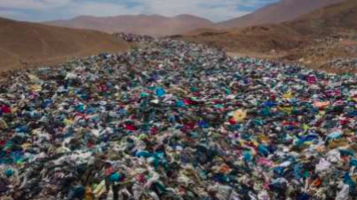Resíduos têxteis como matéria-prima no design de produtos em empresas da economia criativa e circular
Este estudo descreve os resultados de uma pesquisa sobre o projeto de produtos com resíduos têxteis como matéria-prima em pequenas e microempresas brasileiras da economia criativa e circular. A pesquisa, qualitativa, teve como suportes a revisão narrativa da literatura e a pesquisa de campo, na qual se utilizou as técnicas da análise documental e da entrevista semiestruturada constituída por formulário e pauta. O objetivo geral é descrever os processos de desenvolvimento de produtos em empresas que utilizam resíduos têxteis como matéria-prima principal, discutindo desafios inerentes ao reaproveitamento desse material. Para isso elegeu-se a população formada por empresários responsáveis pela criação dos produtos. A amostra foi composta por onze empresários especialistas em suas áreas de atuação. Os resultados da análise documental, cotejados com as respostas das entrevistas converteram-se em nove categorias. Os processos de categorização e sintetização estão descritos detalhadamente na seção de Resultados. A partir das categorizações das análises documentais e das respostas das entrevistas, obteve-se o elenco dos tópicos que eram relevantes para a amostra. Isso tornou possível organizar os resultados e sintetizá-los, chegando a três principais categorias de análise: a) design de produtos b) economia criativa e circular; e c) ciclo de vida dos produtos e reaproveitamento de materiais. A partir da análise, pode-se afirmar que essas abarcam os fatores basilares para o desenvolvimento de produtos sustentáveis que tem resíduos têxteis como a matéria-prima principal.
This study describes the results of a research on the design of products with textile waste as raw material in Brazilian small and micro-enterprises of the creative and circular economy. The qualitative research was supported by a narrative review of the literature and field research, in which the techniques of document analysis and semi-structured interviews were used, consisting of a form and a questionnaire. The general objective is to describe the product development processes in companies that use textile waste as their main raw material, discussing challenges inherent to the reuse of this material. For this, the population formed by entrepreneurs responsible for the creation of the products was elected. The sample consisted of eleven business people who are specialists in their areas of expertise. The results of the document analysis, compared with the answers of the interviews, resulted in nine categories. The categorization and synthesis processes are described in detail in the Results section. From the categorizations of the documentary analysis and the answers to the interviews, the list of topics that were relevant to the sample was obtained. This made it possible to organize the results and synthesize them, reaching three main categories of analysis: a) product design; b) creative and circular economy; and c) product life cycle and reuse of materials. From the analysis, it can be said that these cover the basic factors for the development of sustainable products that have textile waste as the main raw material.
